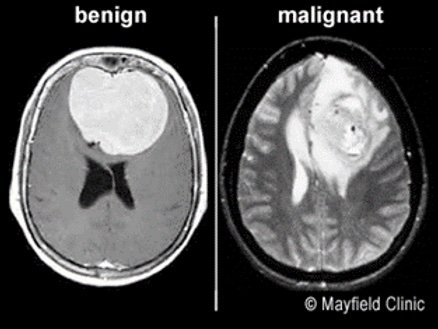Patients who suffer from brain tumors are constant learners throughout their journey. There are many misconceptions regarding brain tumors. Since today is World Brain Tumor Day, we here at Valeda would like to take the opportunity to educate you about brain tumors and the effects it has on one’s life.
Fact #1: Brain tumors can have many origins.
A tumor that originated in the brain is called a primary brain tumor. Tumors can also develop in the brain due to the spread of a cancer located somewhere else in the body. This type of tumor is called metastatic. Common cancers that travel to the brain include melanoma and lung, breast, renal, and colorectal cancers. When discussing types of cancer, a patient is diagnosed by the location of the origin of the tumor. Therefore, brain cancer is diagnosed when the cancer originated in the brain. When a patient presents with a brain tumor, providers will seek out the source of the tumor first in order to target their therapy appropriately.
Fact #2: Not all tumors are cancerous.
These tumors are called benign. They are unable to be metastatic and do not invade surrounding tissues. Even though this type of tumor is not cancerous, it can still be very dangerous when located within the brain. The majority of brain tumors are benign. These can still cause symptoms for the patient that vary greatly depending on the region of the
brain that is affected by the tumor. For example, the occipital lobe of the brain helps us process our vision. When a tumor develops in that region, symptoms may include altered vision, vision loss, and hallucinations. The compression of the tumor on surrounding tissue is the underlying cause of these symptoms.
Fact #3: Brain tumors are difficult to diagnose.
Due to the physiological location of the brain, detecting a brain tumor with the naked eye is very uncommon. Most times brain tumors are found incidentally when images of the brain are ordered for a different neurologic problem. In some cases, patients will present with newly developed symptoms with no apparent source. When a brain tumor first begins to grow, it is very hard to detect due to the lack of symptoms present. As the tumor grows larger and affects surrounding tissue, this is when a patient will begin experiencing associated symptoms. To diagnose a patient, either an MRI or CT scan can be used to produce an image of the brain with the tumor. When looking at a tumor imaged by this process, doctors access the shape and structure to determine if it is cancerous or benign. Benign tumors are more symmetrical and uniform than a cancerous tumor. You can see this demonstrated in the image below.

Living with a brain tumor is not easy. For this reason, we take this day to recognize those who strive daily to combat the symptoms caused by their tumor. Symptoms that greatly affect quality of life of a patient include fatigue, pain, seizures, and decreased cognitive function. It is important that we are there for the people in our communities who have to deal with such difficulties and be a source of support for them. These physical symptoms can also affect a patients emotional, mental, and spiritual health. Together we are able to overcome the challenges by increasing awareness and support for these patients. At Perigon Pharmacy 360, we are thankful every day to be a part of our patients’ lives through the support that we offer as they live and work through their difficult times. We do whatever we can to take any burden off of our patients so that they do not have to worry about anything other than being as healthy as possible. It is with great pride that we help our patients and their care providers experience the Perigon Pharmacy 360 Difference.
